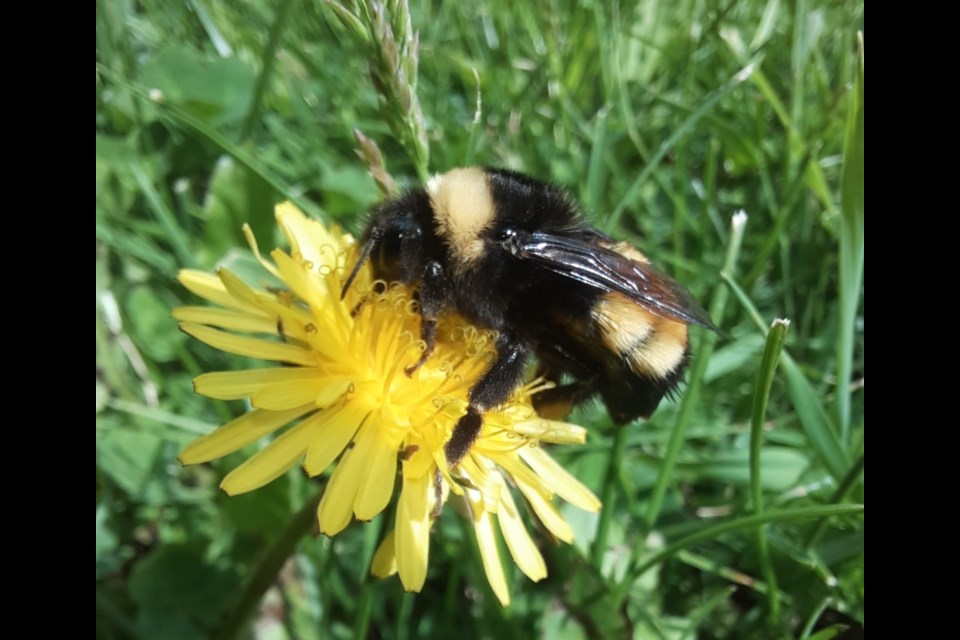Good news on the local bumble bee front!
A number of bee species were found in Laurier Woods Conservation Area when Wildlife Preservation Canada’s (WPC) bee research team’s turned up a number of species on the decline during their recent spring survey to locate rare and declining bumble bees throughout Ontario.
“We found Common Eastern Bumble bees, Confusing Bumble bee, Orange Belted Bumble bee, two spotted Bumble bees and the Yellow Banded Bumble bee”, said Stacey Kinder, WRC’s Regional Field Biologist,.
“It was very exciting to find the Yellow Banded Bumble Bee. This was the bee we were looking for as it is of special concern in Ontario. We also saw a Gypsy Cuckoo Bumble bee which is also on the Species at Risk list in Ontario,” she added.
During spring surveys in April, May, and June, WRC field crews collect yellow-banded bumble bee (B. terricola) and brown-belted bumble bee (B. griseocollis) queens for use in WPC’s conservation breeding program. Captive breeding is an effective tool at helping to bring a species back from the brink of extinction.
The yellow-banded bumble bee is closely related to other declining bumble bee species in Ontario and as such, is a model species for use in ecological research projects, captive breeding and husbandry studies, and investigations into declining bumble bee biology and natural history.
“Overall, WRC told us they had a very successful day and may return to Laurier Woods Conservation Area to search for more bees in the future," said Troy Storms, Manager of Lands and Stewardship. "It’s good news for our local population of pollinators,”
Wildlife Preservation Canada exists to save animal species at risk of extinction in Canada by:
- performing hands-on work with species requiring direct intervention to recover
- providing opportunities, both within Canada and abroad, for Canadian conservation scientists to grow their expertise in working with animal species at risk and add to the overall body of knowledge on the subject.
Click here to learn more about this study and other work they do.



